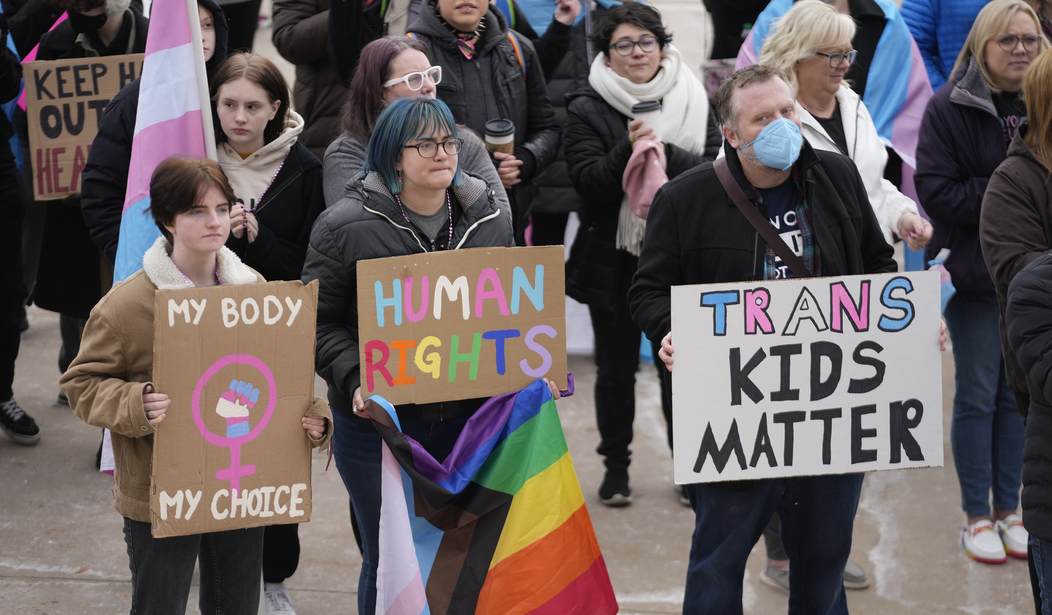Colorado is trying hard to become more like California, it seems. This is especially true when it comes to pushing gender ideology on school children.
State lawmakers have put forth a draft bill that would allow transgender students to use their preferred opposite-gender names and pronouns in schools. It would enforce this by subjecting teachers and other members of staff to punishment if they refuse to use the chosen names and pronouns.
The bill is designed to create a uniform policy across all state school districts.
Colorado students who are transgender and go by a name that’s not their legal one would have the right to use their preferred name at school, and teachers who disregard their wishes could face disciplinary action.
That’s the proposal outlined in draft legislation that has received preliminary approval from a committee of state lawmakers and was brought forward by high school students who are part of the Colorado Youth Advisory Council.
With the proposal, lawmakers are stepping into a polarizing issue that has erupted recently in school board contests and in school districts that have attempted to honor students’ wishes without consent from parents.
Students already have the right to use preferred names and pronouns through the state Civil Rights Commission, which says that “deliberately misusing an individual’s preferred name, form of address or gender-related pronouns” is discriminatory. But school district policies on the matter vary. A state law could create a uniform policy for districts, including a plan of action when a teacher or staff member refuses to use a students’ preferred name or pronouns.
It could also clear up confusion about what school districts are supposed to do when a student wants to use a preferred name and their parents do not.
This measure would essentially create a blanket policy for all school districts, who typically handle these matters differently. For instance, the Poudre School District in Fort Collins was placed in a dilemma when a student wanted to go by a different name, which the parents disapproved of. Boulder Valley School District’s policy is similar in that it emphasizes parental involvement while seeking to place the child’s needs above all. What this actually means is that if the children do not want their parents involved, the school can shut them out.
Boulder Valley School District’s policy, which is similar to that of Poudre Valley, was the subject of a story in the conservative Washington Examiner last year. The policy says schools should involve parents “but should first discuss the parental involvement with the student to avoid inadvertently putting the student at risk of harm.”
Boulder Valley also has a “gender support plan,” which includes a form intended to create “shared understandings about the ways in which the student’s authentic gender will be accounted for and supported at school.”
If the draft bill is passed, it would establish a task force to decide how to handle the issue of parental involvement when dealing with children suffering from gender dysphoria.
Naturally, the proposed measure has elicited sharp criticism from Republican lawmakers. State Rep. Janice Rich asked if keeping “a big change” from parents was appropriate. She raised questions about the possible consequences to staff who fail to abide by the policy. “What if a staff member fails to use a pronoun? They could be deemed guilty by the Civil Rights Commission,” she said.
State Rep. Ron Weinberg also criticized the bill, saying it would promote secrecy: “I think doing things behind parents’ backs pushes more into the era of being deceitful, rather than accepting.”
These are all valid questions. But it is unlikely that proponents of transing children will care. Their objective is to promote this ideology among students – especially without their parents’ knowledge. In California, it has become far easier for school districts to help kids “transition” to the opposite gender without the knowledge or consent of their parents. Now, Colorado seems to be following suit – unless enough parents can successfully fight back against this blatant attempt to violate their rights.














